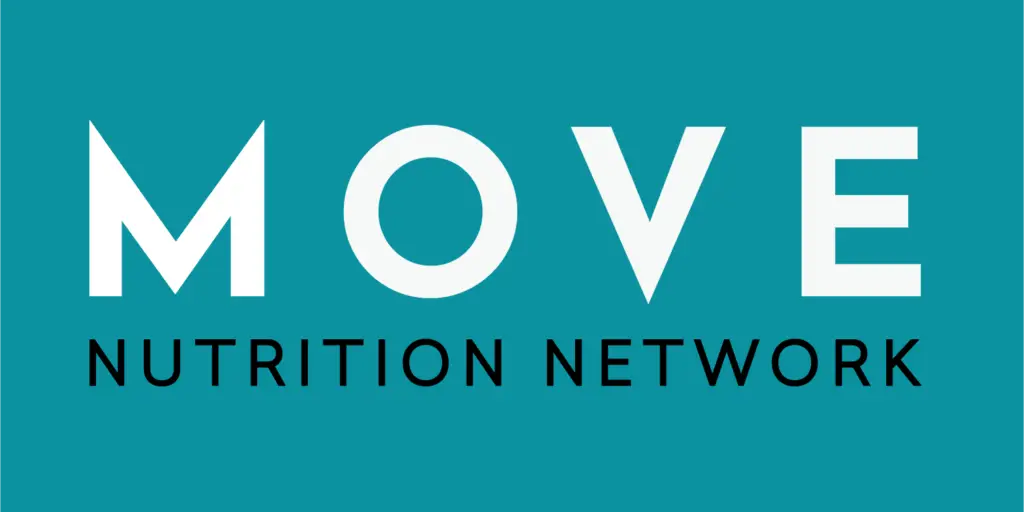From Mind to Muscle:
The Evolution of Cognitive Health in Sports Performance
By Elyse Lovett, MBS, MS
The cognitive health space has gone through major changes over the past decade with advancements in product innovation, clinically studied ingredients, and new crossover categories emerging. One of the most notable changes in the cognitive health space is the surge in product innovation which deliver products that are tailored to various aspects of cognitive health. One cross-over category that has particularly gained attention is the relationship between brain health and sports performance.
Traditionally the focus has been on strength, endurance, and recovery but in recent years there has been a growing recognition of the importance of cognitive health in optimizing athletic performance. Athletes and active nutrition enthusiasts are increasingly realizing that mental acuity, focus, and attention are just as crucial as physical fitness in determining success on the field, court, or at the gym. The shift in thinking has led to the emergence of a cross-over category that bridges the gap between cognitive health and sports performance.
Defining the Users
When it comes to athletic performance, the quest for optimal health, strength, endurance, and recovery drives individuals to explore many cognitive health ingredients and dietary supplement options. Whether you are a seasoned bodybuilder sculpting muscle, an athlete striving for peak performance on the court, or a fitness enthusiast dedicated to overall well-being, the role of cognitive health is important in supporting fitness goals. Each group addresses these goals with unique priorities, but all share a common theme of aligning with what works based on their experiences. Whether through diet or supplementation, understanding the specific needs and preferences within each category helps optimize results for long-term goals.
Bodybuilders
Bodybuilders typically focus on maximizing muscle gains, strength, mass, and power. This also involves a regimen of foods and supplements to enhance performance and recovery. Bodybuilders focus their diets on high protein intake essential for muscle repair and growth, complex carbohydrates to replenish glycogen stores, and healthy fats for overall health. In addition, this group uses popular ingredients like BCAA’s, creatine, beta-alanine, whey protein, glutamine, and nitric oxide boosters. Bodybuilders display less emphasis on cognitive health benefits compared to athletes and active nutrition users, as we explore below.
Athletes
Athletes are driven by performance and the will to win and most likely seek out supplements that support their physical endurance. Athletes prioritize supplements that enhance strength, speed, and agility. Ingredients such as BCAA’s proteins, glutamine, hydration solutions, and joint supplements containing MSM, glucosamine, collagen, and chondroitin are commonly used by athletes with safety and quality at the top of mind for supplementation.
In addition, the modern athlete is increasingly recognizing the role of cognitive function in achieving optimal athletic performance and benefits in areas such as focus, attention, and reaction. The modern athlete is realizing that these cognitive health benefits can make all the difference in defeat on the track, field, or court. Whether it is cognitive benefits that promote alertness and concentration, adaptogens that support reducing stress and fatigue, or brain health compounds that safeguard against burnout of cognitive decline, athletes are turning to these types of supplements to address both mind and body benefits.
In regard to diet, athletes prioritize high-quality sources of macronutrients to provide the energy and building blocks for training and recovery. Athletes also pay close attention to their micronutrient intake while ensuring they receive vitamins, minerals, and antioxidants to support immune function, energy metabolism, recovery, and cognitive health.
Fitness and Active Nutrition Users
Fitness and active nutrition users focus on general health and incorporate a supplement regimen that drives improvement in overall well-being. This includes vitamins, minerals, weight management aids, mood and stress management, and cognitive enhancers for focus and attention. Additionally, they focus on nutrients that support GI and immune health. These users are a little more open to trying a variety of supplements particularly those endorsed by influencers who resonate with their lifestyles and preferences. The more advanced active nutrition user will consider factors such as efficacy, science, quality, and safety when it comes to investing in ingredients and products.
For the active nutrition user, the connection between physical fitness and cognitive health is priority when it comes to peak performance whether it is a high-intensity workout, a 5K, or mastering a new yoga position. Regular exercise for these users is not just about a lean physique or building muscle but it also includes the benefits for the brain.
Popular Nutrients for Brain Health
Nutrition serves as the main driver for optimal brain function where a “healthy” brain thrives on a balanced diet rich in nutrients. Some of the nutrients that have driven the category in the past and continue to drive it are listed below:
Omega Fatty Acids – Omega fatty acids, particularly omega-3 fatty acids, play an important role in brain health and overall cognitive function. Omega-3 FA’s are components of cell membranes throughout the body including the brain. Omega-3 FA’s provide structural support and neurotransmitter function while maintaining efficient communication between brain cells and playing a role in mood regulation and cognitive function. A 2022 systematic review indicated that the consumption of omega-3 improved learning, memory ability, cognitive well-being, and blood flow in the brain.1
B-Vitamins– B-Vitamins play a role in neurotransmitter synthesis and DNA repair. A 2022 systematic review and meta-analysis showed that B-vitamins are associated with a slowing cognitive decline, especially for those who received early intervention.2 Folate, a well-known B-Vitamin for brain health, plays a crucial role in neurotransmitter syntheses, and plays an important role in mental health.
Choline and Citicoline- Choline is a precursor to acetylcholine which is a neurotransmitter that plays a key role in memory and learning. Adequate intake of choline supports the release of acetylcholine which facilitates optimal neuronal communication and cognitive function. In addition, choline is a component of phosphatidylcholine, a major phospholipid found in brain cells. Phosphatidylcholine helps maintain the integrity of the cells allowing for efficient neuronal signaling.
Citicoline also known as CDP-choline is a compound derived from choline and cytidine which is broken down into their individual components once ingested. Each choline and cytidine have unique roles in the brain. Cytidine is converted to uridine which is a nucleotide that plays a role in the synthesis of phosphatidylcholines and other phospholipids in the brain.
In addition to omega fatty acids, B vitamins, and choline, other ingredients such as antioxidants, adaptogens, and polyphenols contribute to brain health and cognitive function. These nutrients can protect against oxidative stress, help the body adapt to stress, and support a healthy mood.
Omega Fatty Acids
B Vitamins
Choline & CitiColine
Cognitive Benefits Driving Active Nutrition
There are numerous nutrients and ingredients on the market that support brain health and deliver benefits in multiple different categories. If we take a look at those ingredients that support active nutrition and sports performance, there are many cognitive subcategories that we can explore. As consumers are seeking ways to optimize their cognitive function, the demand for tailored solutions to support brain health in the context of physical performance has surged. The following explains the different cognitive health benefits, how they relate to sports performance, and the ingredients that are driving the category.
Focus, Attention, and Reaction Time
Supporting focus and attention for sports performance allows athletes and active nutrition users to maintain concentration and make quick decisions. Enhanced focus enables anticipated changes in play, reactions to immediate situations, and strategic positioning on the field or court. Reaction time allows athletes and active nutrition users to respond quickly to various situations or a sudden change in play. Having the advantage of a rapid reaction time could be the difference between success and failure in fast-paced sport when a split-second decision is crucial.
There are many science-backed ingredients on the market that support focus, attention, and reaction time including legacy and new emerging ingredients. Two very different ingredients that have supporting science in this category are citicoline and bacopa. Citicoline is a naturally occurring compound and an efficient supplier of choline, a precursor to acetylcholine. Citicoline increases blood flow to the brain without the use of stimulants and supports cognitive function, focus, attention, and concentration. The branded form Cognizin® is a clinically studied citicoline in various demographics to support focus, mental clarity, memory, and brain energy.
Another ingredient that works very differently than citicoline is Bacopa monnieri a traditional adaptogenic herb known for its cognitive-enhancing properties. Bacopa contains active compounds known as bacosides, which exert various neuroprotective effects. A new branded form of Bacopa was recently launched into the market this year called B-Lit Bacopa™ and has been clinically studied to support a wide variety of cognitive health benefits.
Stress and Mood
Stress and mood support are important aspects of active nutrition and sports performance as they influence a person’s mental state and overall well-being. The demands of training, competition, and the pressure of performance can place stress on athletes or active nutrition users affecting their mood and overall mental state.
There are many ingredients on the market for stress and mood support and each can potentially target specific demographics. L-Theanine is a well-studied amino acid found in tea leaves. The ingredient modulates the levels of neurotransmitters in the brain by increasing the levels of GABA, serotonin, and dopamine. By enhancing the activity of these neurotransmitters, the ingredient helps reduce stress and anxiety while promoting a more balanced mood. Suntheaine® is a clinically studied form of L-Theanine produced by a proprietary enzymatic fermentation process that mirrors the natural biosynthesis of natural L-Theanine. The ingredient offers multiple benefits for stress management and overall mental well-being. In addition, there are adaptogenic herbs on the market that are clinically studied for mood and stress support including Shatavari Root Extract (aspurūs®-branded form), and Rhodiola Rosea (Rhodiolife® – branded form.) These ingredients make great choices to support mood and stress in sports nutrition products that are geared towards women’s health due to their ability to support menopausal symptoms.
Sleep and Recovery
Sleep plays an important role in sports performance to support recovery and mental acuity. During sleep, the body undergoes processes of repair and growth, including muscle tissue repair and muscle protein synthesis (MPS.) Adequate sleep is critical for these processes and allows athletes and active nutrition users to recover from training and repair damaged tissues. In addition, adequate sleep allows energy stores to be replenished and restores glycogen, the primary fuel for high-intensity exercise and sports.
Two ingredients on the market that have extensive research for sleep benefits are melatonin and magnesium. Melatonin is a naturally-produced hormone in the brain and plays a role in regulating the sleep-wake cycle. Magnesium is an essential mineral involved in sleep regulation. The mineral is known for its muscle-relaxing properties which reduce tension. Magtein® is a branded form of magnesium as magnesium L-Threonate. This form of magnesium has been clinically studied for its ability to cross the blood-brain barrier and increase magnesium levels in the brain.


Summary
In summary the relationship between cognitive health and sports performance represents a growing area in ingredient science, product development, and consumer education. As athletes and active nutrition users realize the role cognitive health benefits such as focus, attention, reaction time, mood, and sleep play in achieving peak performance, the demand for solutions in brain-sport products has increased.
There is a wide variety of nutrients available to specific demographics so users can enhance their overall cognitive function as it relates to sports performance. Whether it is leveraging neuroprotective properties, supporting stress reduction, or restoring sleep for better recovery, individuals can tailor their supplement regimen to meet their specific performance goals.
We are just beginning to scratch the surface of cognitive health benefits for sports performance. As new science continues to evolve, new ingredients emerge, and new products hit the market, consumers will be able to unlock their full-performance potential both mentally and physically.
[1] https://www.ncbi.nlm.nih.gov/pmc/articles/PMC9641984/
[2] https://pubmed.ncbi.nlm.nih.gov/34432056/
Subscribe for additional Move Nutrition Quarterly content like research updates, market insights, and more.

